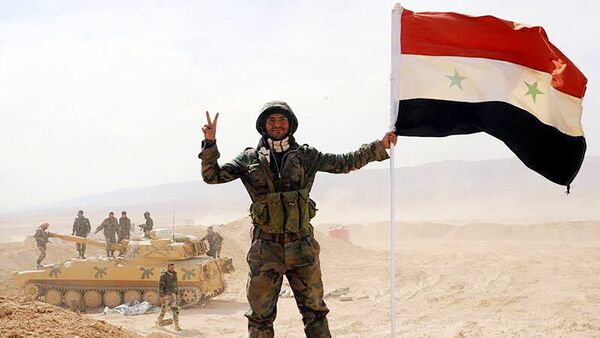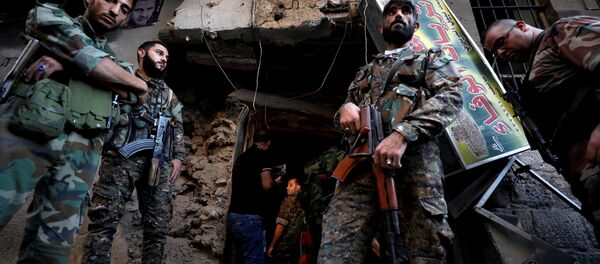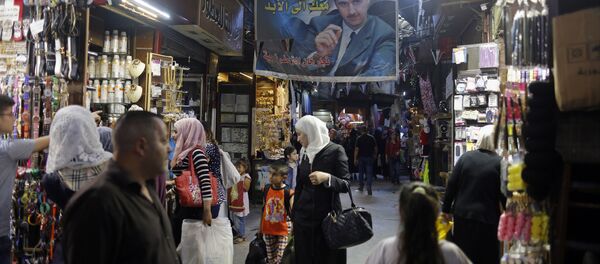Although foreign combatants constitute a minority of Syria's coalition of pro-government forces, they were present in large numbers during this particular operation, mainly because the city is situated close to the Syria-Iraq border. Troops from the 4th Armored Division, Republican Guard, and Iranian Revolutionary Guard Corps (IRGC) were active in this front, in addition to militiamen from numerous Iraqi Popular Mobilization Units (PMUs.)
With Daesh's defeat imminent, pro-government forces will soon turn their attention and resources to Islamist militant groups in other parts of Syria, such as the north-western province of Idlib, which shares a border with Turkey.
Indeed, Ali Velayati, a top aide and foreign policy advisor to Iran's Supreme Leader recently warned that Idlib province would soon be cleared of terrorists. Furthermore, pro-government forces have been deploying reinforcements to northern Syria, in preparation of a large-scale offensive in Hama and Idlib.
"Soon we will see the eastern Syria cleared, and then the Idlib area in the west," Ali Velayati told the Mehr News Agency last month.
Infighting between the alliance of Islamist militants in Idlib has regularly erupted, weakening and fragmenting opposition forces in the area.
Given Idlib's close proximity to Turkey — a key backer of Islamist opposition forces in Syria — the Syrian Army is likely to target this front first, to stem the flow of weapons, especially anti-tank guided missiles (ATGMs), from Turkey to terrorist groups which have plagued the country for several years.
The campaign to liberate Idlib is likely to be the Syrian Army's flagship operation of 2018, with a large chunk of Syria's offensive forces expected to be allocated to north-western Syria.
Ground forces will benefit greatly from Russian air support, as Idlib is close to the Khmeimim airbase. Therefore, warplanes and attack helicopters will have less distance to fly to replenish their payloads and armaments, and can react quickly to developments on the ground.
Liberating the east Ghouta pocket in Damascus is unquestionably another strategic objective for the Syrian Army in the near future, as it would further cement the Syrian Army's control over the capital, while also inhibiting mortar attacks on the city.
In recent months, Islamist militants have intensified their attacks on Damascus, targeting the Russian Embassy, governmental buildings, cafes, restaurants, gyms and schools. Dozens have been killed or injured as a result of these attacks, including two members of Syria's national judo team.
Although this pocket has been used as a launch-pad for such attacks, wreaking havoc on government-held areas in Damascus for years, it's likely to be deemed less of a priority than Idlib by the Syrian Army's General Command, as the area is surrounded and contained.
As an estimate, we can expect militants to be ousted from Damascus by some point in the second half of 2018.
Wide-scale clashes between pro-government forces and the Kurdish-led SDF are unlikely to occur in the near future, as the SDF, and its governing forces in northern Syria, are reliant on the Syrian government to survive, as their territory is landlocked by hostile countries.
Instead, they will probably yield to the Syrian government's demands, and strike a deal.
Although Syrians are keen to see the Syrian Army launch operations against remaining terrorist forces in the country, it should be noted that Daesh is likely to continue to utilize asymmetric warfare, such as IEDs and sleeper cells, to destabilize eastern Syria over the coming months.
The views expressed in this article are solely those of the author and do not necessarily reflect the official position of Sputnik.
Follow Suliman Mulhem on Twitter




